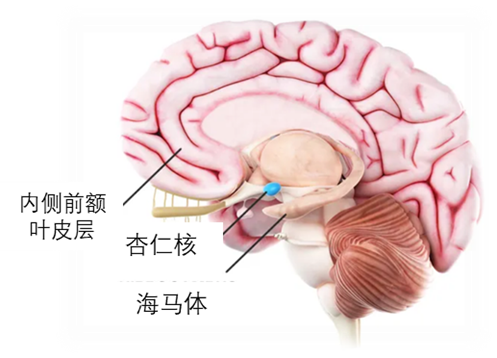博文
好好学习,天天向上(3)情绪第一
||
二、情绪
情绪(emotion)一词源于拉丁语词emovere,本意是“鼓动”或“移出”,这意味着情绪包含了一种运动的状态(p.254) (Burkley E. et al., 2020),而恰好学习本身也是一种运动 (Beilock and Li P., 2016; Booth et al., 2002)。区别于情感(affect),情绪需要一段较长的时间进行积累,并在最终达成一种无意识、评价性的反应 (Burkley E. et al., 2020)。这种反应最初被认为是由行为产生的,但后续的理论则认为情绪和行为可能是并行发生并互相影响的 (Dror, 2014; Reisenzein, 1983)。
从生理基础上说,情绪产生于大脑中的边缘系统。目前研究者所知道的主要影响的具体结构是杏仁核(p.333) (Gazzaniga et al., 2011)。但情绪并非完全由这个部分独立产生和运用,一些研究指出副交感神经、肌肉、腺体和血液都参与了情绪的工作机制(p.89) (Claxton et al., 2022)。从具身认知的角度,可以认为情绪是人类身体的本能和基础功能,无论是否承认或是注意,情绪都时刻的产生并工作着,影响着人们的认知和行为 (Claxton et al., 2022; Burkley E. et al., 2020)。
在行为科学和认知科学的研究范式当中,情绪是一种曾被关注的因素,但未被置于对学习有着关键影响的位置。而另一方面,心理学家们,像阿德勒、荣格、弗洛伊德这些人,很早就指出了情绪对于人类的思想和行为有着非常巨大的影响。情绪与学习之间的切实联系,是直到社会文化视角被引入到认知科学当中之后才开始逐渐出现 (Bandura, 2014; Markus and Kitayama, 1991),然后随着神经科学的反复论证被推到了最为核心的前排位置。情绪到底怎样影响学习?为了解答这个问题,研究者开展相关的研究汗牛充栋,我们在这里只能涵盖其中很小的一部分对其加以讨论。
首先是情绪对于认知系统、感觉器官和大脑的影响。要了解这个影响机制,就必须要首先理解杏仁核的工作方式。简单来说,杏仁核并不是一个具有思考能力的模块,它直接(通过感觉器官)感知外部环境或者外界事物,并且迅速的、不假思索地做出反应(p.314) (Gazzaniga et al., 2011)。这意味着,如果学生面临着一个令人恐惧或者压力巨大的场景,抑或是一位严肃且冷漠的教师,他们的杏仁核会直接代替大脑皮层接管整个认知系统,以帮助学生适应、对抗或者是逃离这种外部影响 (Arnsten, 2009)。在这样的情况下,人们没有办法集中注意力,也无法进行逻辑上的思考和记忆编码(p.14) (Stixrud and Johnson, 2020)。相反,如果学生进入了一个令他们享受的环境,或是面对着一位让他们钦佩并亲近的师长,他们的杏仁核会放缓节奏,并且提示附近的丘脑释放出多巴胺来促进我们的亲社会行为 (Nieoullon, 2002)。因此,研究指出,情绪体验可能是学习和思维活动的第一个关卡,由于杏仁核和海马体在脑神经传递中的位置(非常接近) (Richter-Levin and Akirav, 2000),这种推测很有可能是正确的。
情绪对于记忆同样存在着影响 (Kazui et al., 2000)。考虑到海马体在记忆机制中的关键作用,以及它和杏仁核的空间位置关系,情绪对于记忆有着很大的影响则并非什么意外了。研究已经发现,激烈的负面情绪往往伴随着深刻的记忆,想想那些童年阴影,有些记忆会伴随他们一生并且经常被唤醒 (Kensinger, 2007)。长久的负面情绪还会对前额皮质和杏仁核造成永久性的损伤,进而影响人们的注意力、判断力和记忆能力 (Davidson, 2002; Urry et al., 2006)。但是如果情绪在稳定状态下,情绪对记忆的影响似乎就并不明显了,不过一定的情绪变化还是会对外显记忆以及陈述性记忆有着显著的帮助 (Kazui et al., 2000; Tyng et al., 2017)。具身认知科学的证据显示,在完成任务时的积极情绪能够在下一次执行类似任务时被重新唤醒,进而提高完成任务的动机和效果 (Sanders et al., 2012; Hagger and Chatzisarantis, 2013)。这种观点通常又被称为情绪记忆 (Hamann, 2001)。

图片来源于网络
情绪对于学习行为的影响同样不可小觑。在缺乏情绪的情况下,人们将会失去评判事物是好还是坏,是对还是错的能力 (Essex et al., 2013)。其结果是人们将会失去几乎全部的能动性,别说开展学习了,连出门去吃饭可能都无法做到。幸好,一般来说所有健康的人都会拥有情绪,一个3岁的幼儿都会利用自己的情绪识别能力来引导父母做出自己希望的行为 (Robert Feldman et al., 2013)。就情绪的影响而言,学习和生活中的其他行为没有太多的不同,积极的情绪将带来更高的学习效率,更好的投入水平以及更好的学习效果 (Tan et al., 2021)。不良的情绪将引发规避行为,如果强迫自己在不良的情绪中学习,则会降低学生的学习动力,学习兴趣,甚至最终让他们辍学 (Sarah D. Sparks and Debra Viadero, 2016)。这一情况在男生身上尤其明显,研究者认为这与学龄男生的神经发育阶段有关(p41) (Gurian, 2018)。对于教师来说,无论面对怎样的学生,营造一个富有亲和力的形象往往总是会带来更好的教学效果 (Li X. et al., 2022)。另一方面,教师也要避免引发学生的不良情绪,尤其是面对那些小男孩的时候——他们健壮的身体常常让师长们忽略他们脆弱的情感 (Gross et al., 2023)。
总的来说,情绪不仅能够引发行为的变化,也伴随着行为一起发展。基于神经生物学和认知心理学的种种证据解释了情绪的强大作用。如何在教学中引发积极良好的情绪,以及如何在学习中稳定和利用自己的情绪,是学习科学必须关注的研究领域。最近十年,一些研究者提出了所谓“情绪智力”,即准确识别、评估、表达和调节自己情绪的能力,可以作为学习科学研究的一个重要影响因素。
参考文献
Arnsten A F T. Stress signalling pathways that impair prefrontal cortex structure and function[J]. Nature reviews. Neuroscience, 2009, 10(6):410–422. DOI: 10.1038/nrn2648.
Bandura A. Self-efficacy in health functioning[M] // Ayers, S; Baum, A; McManus, C, et al. Cambridge Handbook of Psychology, Health and Medicine. Cambridge University Press, 2014: 191–193. DOI: 10.1017/CBO9780511543579.041.
Beilock S, Li P. How the body knows its mind[M]. Di 1 ban. Beijing: Ji xie gong ye chu ban she, 2016.
Booth F W, Chakravarthy M V, Spangenburg E E. Exercise and gene expression: physiological regulation of the human genome through physical activity[J]. The Journal of physiology, 2002, 543(Pt 2):399–411. DOI: 10.1113/jphysiol.2002.019265.
Burkley E, Burkley M, Guo S. Motivation science[M]. Di 1 ban. Beijing: Ren min you dian chu ban she, 2020.
Claxton G, Meng Y, Liu S. Intelligence in the flesh[M]. Di 1 ban. Beijing: Zhong xin chu ban ji tuan gu fen you xian gong si, 2022.
Davidson R J. Anxiety and affective style: role of prefrontal cortex and amygdala[J]. Biological psychiatry, 2002, 51(1):68–80. DOI: 10.1016/S0006-3223(01)01328-2.
Dror O E. The Cannon–Bard Thalamic Theory of Emotions: A Brief Genealogy and Reappraisal[J]. Emotion Review, 2014, 6(1):13–20. DOI: 10.1177/1754073913494898.
Essex M J, Boyce W T, Hertzman C, et al. Epigenetic vestiges of early developmental adversity: childhood stress exposure and DNA methylation in adolescence[J]. Child development, 2013, 84(1):58–75. DOI: 10.1111/j.1467-8624.2011.01641.x.
Gazzaniga M S, Ivry R B, Mangun G R, et al. Cognitive neuroscience[M]. Di 1 ban. Beijing: Zhong guo qing gong ye chu ban she, 2011.
Gross N, Jacobs C E, Marar R, et al. ‘This school is too diverse’: fragile feelings among white boys at elite independent schools[J]. Whiteness and Education, 2023, 8(2):193–211. DOI: 10.1080/23793406.2022.2072758.
Gurian M. Boys and Girls Learn Differently![M]. Di 1 ban. Hangzhou: Zhejiang ren min chu ban she, 2018.
Hagger M S, Chatzisarantis N L D. The sweet taste of success: the presence of glucose in the oral cavity moderates the depletion of self-control resources[J]. Personality & social psychology bulletin, 2013, 39(1):28–42. DOI: 10.1177/0146167212459912.
Hamann S. Cognitive and neural mechanisms of emotional memory[J]. Trends in cognitive sciences, 2001, 5(9):394–400. DOI: 10.1016/S1364-6613(00)01707-1.
Kazui H, Mori E, Hashimoto M, et al. Impact of emotion on memory. Controlled study of the influence of emotionally charged material on declarative memory in Alzheimer's disease[J]. The British journal of psychiatry : the journal of mental science, 2000, 177:343–347. DOI: 10.1192/bjp.177.4.343.
Kensinger E A. Negative Emotion Enhances Memory Accuracy[J]. Current Directions in Psychological Science, 2007, 16(4):213–218. DOI: 10.1111/j.1467-8721.2007.00506.x.
Li X, Bergin C, Olsen A A. Positive teacher-student relationships may lead to better teaching[J]. Learning and Instruction, 2022, 80:101581. DOI: 10.1016/j.learninstruc.2022.101581.
Markus H R, Kitayama S. Culture and the self: Implications for cognition, emotion, and motivation[J]. Psychological Review, 1991, 98(2):224–253. DOI: 10.1037/0033-295X.98.2.224.
Nieoullon A. Dopamine and the regulation of cognition and attention[J]. Progress in neurobiology, 2002, 67(1):53–83. DOI: 10.1016/S0301-0082(02)00011-4.
Reisenzein R. The Schachter theory of emotion: Two decades later[J]. Psychological Bulletin, 1983, 94(2):239–264. DOI: 10.1037/0033-2909.94.2.239.
Richter-Levin G, Akirav I. Amygdala-hippocampus dynamic interaction in relation to memory[J]. Molecular neurobiology, 2000, 22(1-3):11–20. DOI: 10.1385/MN:22:1-3:011.
Robert Feldman, jie S y, dan Z. Developmental Psychology[M]. Bei jing: Shi jie tu shu chu ban gong si bei jing gong si, 2013.
Sanders M A, Shirk S D, Burgin C J, et al. The gargle effect: rinsing the mouth with glucose enhances self-control[J]. Psychological science, 2012, 23(12):1470–1472. DOI: 10.1177/0956797612450034.
Sarah D. Sparks, Debra Viadero. How Students’ Emotions Affect Their Schooling[OL]. [2023-08-11]. https://www.edweek.org/leadership/how-students-emotions-affect-their-schooling/2016/04.
Stixrud W R, Johnson N. The Self-Driven Child: The Science and Sense of Giving Your Kids More Control Over Their Lives[M]. Di 1 ban. Beijing: Ji xie gong ye chu ban she, 2020.
Tan J, Mao J, Jiang Y, et al. The Influence of Academic Emotions on Learning Effects: A Systematic Review[J]. International journal of environmental research and public health, 2021, 18(18). DOI: 10.3390/ijerph18189678.
Tyng C M, Amin H U, Saad M N M, et al. The Influences of Emotion on Learning and Memory[J]. Frontiers in psychology, 2017, 8:1454. DOI: 10.3389/fpsyg.2017.01454.
Urry H L, van Reekum C M, Johnstone T, et al. Amygdala and ventromedial prefrontal cortex are inversely coupled during regulation of negative affect and predict the diurnal pattern of cortisol secretion among older adults[J]. The Journal of neuroscience : the official journal of the Society for Neuroscience, 2006, 26(16):4415–4425. DOI: 10.1523/JNEUROSCI.3215-05.2006.
https://m.sciencenet.cn/blog-3583214-1429190.html
上一篇:好好学习,天天向上(2)学习的定义
下一篇:好好学习,天天向上(4)压力的影响